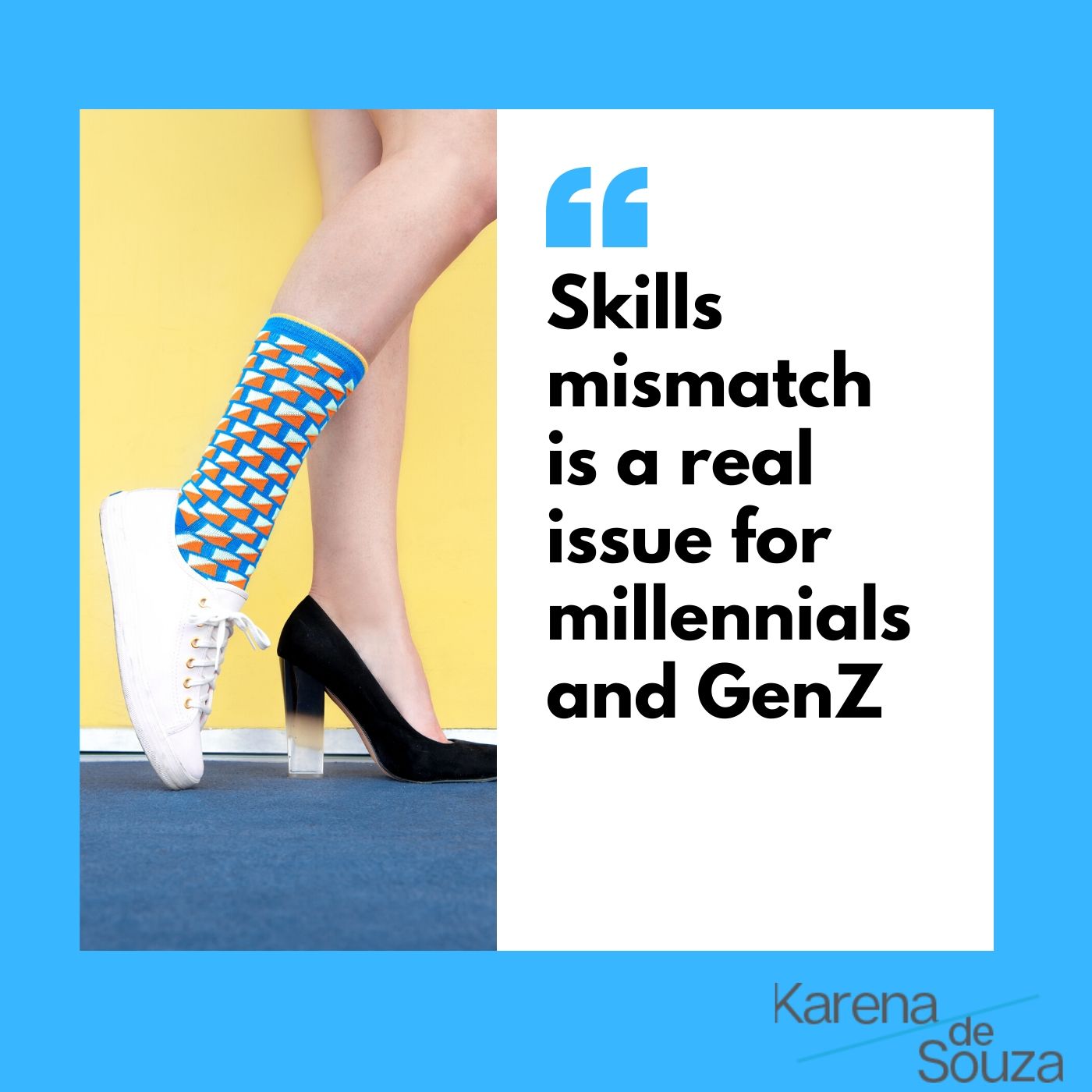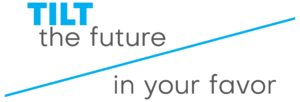
01 Nov It is a matching game
E29: 8 min listen, 3 min read
The math is not adding up …
Employers: We need skilled staff.
Gen Z & Millennials: We have a post-secondary education.
In the Thrive Global report by Patrick Ow, titled ‘The Future of Work for Millennials (and Gen Z) is Bleak Unless …‘, the author makes the case that these are among the best-educated generations of all time. Yet they remain un- or under-employed.
Mental wellness
There is a mental health crisis looming if we do not figure out this equation.
Mental wellness is one of the 4 core pillars of my platform. I do not wish to see mental wellness becoming the diabetes epidemic of its time 30 years from now, and I seek out articles and studies that debate how we can get out ahead and prevent it.
Gen Z and Millennials are facing a trifecta:
- High unemployment
- High underemployment
- High student loan debt
This wasn’t the social contract that our young adults signed up for.
It was a quick and challenging read. But a timely one. I leave you to draw your own conclusions. But I encourage you to share or discuss the parts that spoke loudest to you.
The quote that stood out for me was:
Persistently higher unemployment rates could create severe social, mental health, and economic problems among younger people.
Underemployed Millennials and Gen Z
There is a higher proportion of post-secondary graduates in these generations than ever before. Encouraged by their parents, their teachers, and in the interest of a more flourishing economy, they took on debt and invested hours and years in securing the education that was supposed to have positioned them for success.
But they are struggling to find full-time jobs in their field of interest or study.
So where did we go wrong?
It’s no longer a numbers game.
On the face of it: low un-employment; a high number of skilled workers.
It is now a matching game.
In a very interesting 2018 report from Manpower that surveyed close to 40,000 employers in over 40 countries, 45% of the employer respondents claimed a growing mismatch between open positions that employers need to be filled, and the skill sets that potential hires were offering.
Once again, the answer offered is a disconnect between what the market wants, and what the education system is delivering.
Get on the ladder
Previous generations would have accepted under-employment as a way to ‘get yourself on the ladder’. So many rags to riches stories start off in the mailroom. But that was a different era. Now, the economics and structure of career development no longer serve that purpose. Because the lower and upper rungs of that career ladder are rusting away as we move out of the Industrial Era.
R O E – RETURN ON EDUCATION
Staying persistently under-employed is no longer viable in the current workspace for a number of reasons (IMHO). Most students come to the table with a significant education investment in time and money. And you want an ROE.
- You have to pay off significant student debt the minute you graduate, and the higher the degree, the more the debt
- You are willing to keep learning on-site, but most employers now want job-ready candidates – for short contracts
- You would like to put your learning to full value, with a job in the field of their study
5 ideas for Millennials and GenZ
What does this mean for a young adult either in post-secondary education, or making the choice for a career? Well, if it’s going to be a career-roller-coaster, you might as well figure out how to enjoy the ride:
- Understand your self-worth: Your value is not defined by having a full-time position. Realize that in today’s job market, there will be periods of downtime. Whether you chose to study Roman civilization or nano-technology, neither has the certainty of a job at the end of that journey.
We are seeing fewer full-time positions available. Even companies like Google & Microsoft are using more contract staff. Focus on ‘Learn how to learn’. Focus on acquiring persistent EQ-skills (critical thinking, teamwork) alongside date-stamped IQ skills. - Build-in some flexibility: Add some classes into your post-secondary curriculum that expand your skillset and make you more appealing to organizations. It could be a certificate in Climate Action or a class in cybersecurity. Maybe a class on plumbing or woodwork that allows you to develop and showcase your design and creativity skills as well as work with your hands.
- Work experience: Where possible add-in work experience, with references showing your ability to learn.
- Multiple Revenue Streams: Figure out alternate ways to create revenue to dampen out the highs and lows of a gig-economy income stream
- Future-proof yourself: Keep current with trends, and use those to explore MOOCs that give you a working vocabulary, understanding and possibly certification in a range of new technologies from AI to Data Science
Next steps
As Millennials, Gen Z, parents, educators or employers, what do you think? Read the article and come back to share your thoughts:
- What has to change to deliver more job-ready applicants?
- Will a candidate who shows that they have learning dexterity be a better match than one with all the right skills on an application?
- Where is this evasive & shifting list of future-proof skills?
In this series:
- In the previous episode ‘Skill mismatch vs under-employment’ we talked about Canadian manufacturers. They are using a 3-pronged attack to fill the gap. That includes training young adults, re-training current staff, and asking for an increase in immigration.
- Next time we will look at the focus on EQ skills through the WEF report ‘This soft skill will boost your employability’.
If you found this blog post valuable, please let us know by rating & following the podcast or leaving a comment.





No Comments